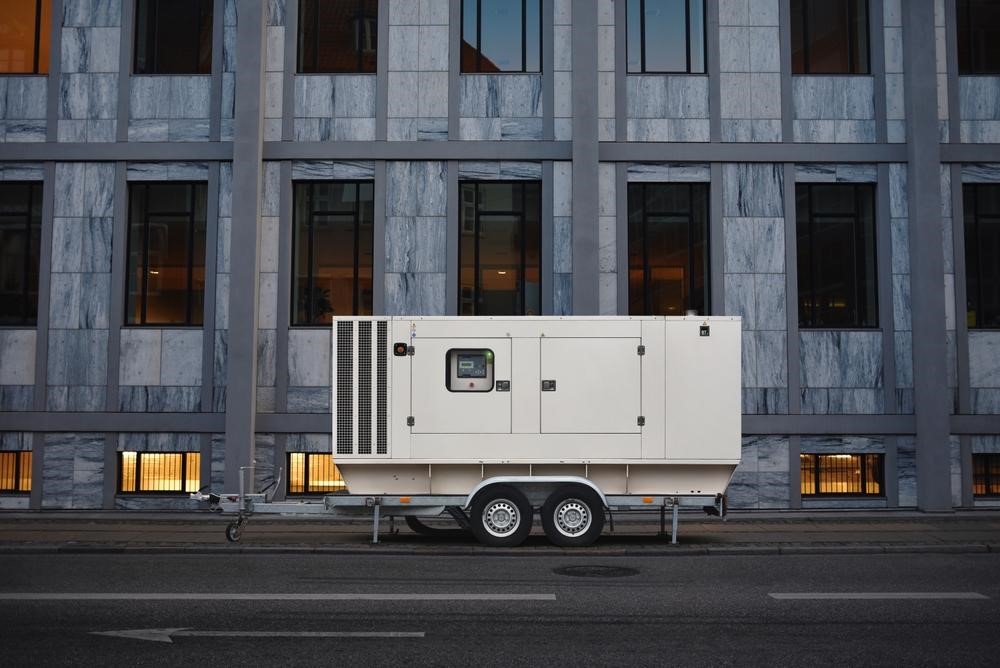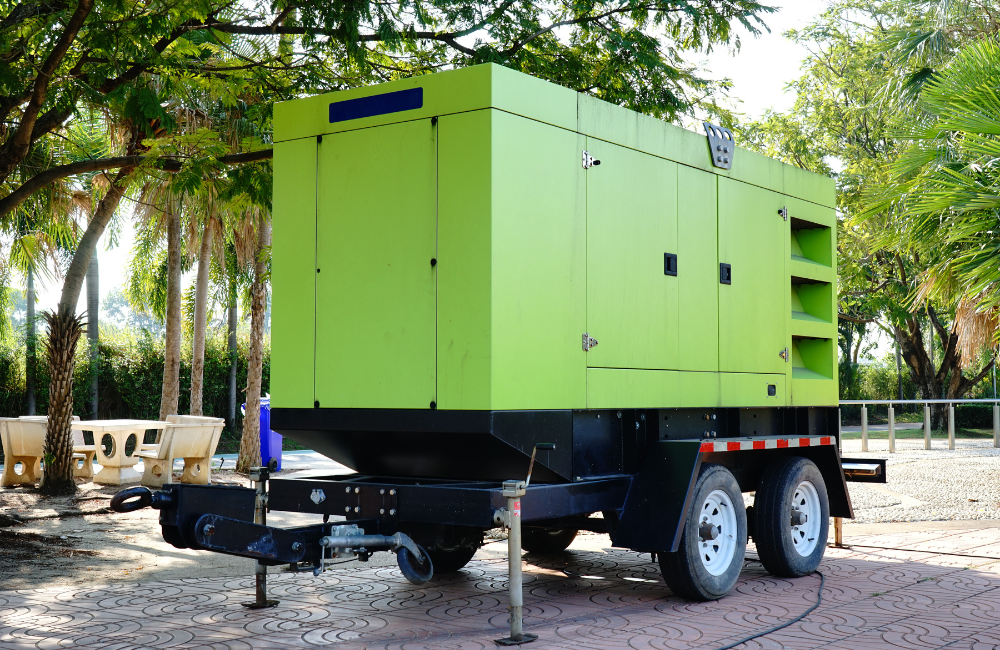
Our Guide to Commercial Generators
You might not have seen them, but you’ve certainly felt their power when they’re at work. During a storm or blackout, commercial generators do everything from saving lives in healthcare facilities to stopping food from spoiling in processing plants. They help you have the time of your life at music festivals and spare your data from security breaches. They’re responsible for keeping the power running 24/7, no matter what circumstances may bring. So, should you rent or buy a commercial generator, and what should you be aware of when you make your choice?
Generators are machines that come in different sizes and shapes and are built differently for all kinds of needs. When you have a large commercial project, a typical residential generator just isn’t going to cut it. Whether you’re renting or buying a commercial diesel generator, there are numerous factors to consider. How much will the commercial generator cost? What are your power needs and the total wattage you’ll require? What about the environmental conditions? Choosing a generator that can handle your anticipated load is important, as is considering your installation requirements and the space available.
A commercial generator will protect your people, your revenue and your reputation for reliability. With decades in the industry, Total Generators are used to supplying commercial generators in sometimes remote locations and tough conditions. Whether it’s commercial generator hire or sales you’re seeking, here is our guide to these tough pieces of equipment.
How Are Commercial Generators Different From Home Generators?
It’s easy to assume all generators are much the same. They certainly work in the same way: by converting a fuel source (generally diesel) into mechanical energy that turns the crankshaft. As combustion takes place in each cylinder, the energy transmits to the engine crankshaft and creates mechanical power for the alternator. The alternator, which depends on a process called magnetic induction, primarily consists of two parts: stator and rotor. The stator is the stationary component, and the rotor fits inside it. As the rotor spins, it produces an electrical current that passes through the coils of the stator to become a magnetic field.
The process is the same between commercial and residential generators, but there are some important ways commercial generators are different, including:
More size, more power
Commercial generators are larger and tougher than residential ones, have bigger engines and are usually placed on concrete slabs. A generator built for homes can’t provide enough power to a hospital, data centre, manufacturing plant or mine. Its modest power capabilities are instead best suited to keeping power on for you and your family in emergencies.
Bigger radiators
Just like they have bigger engines to supply more power, commercial generators also have larger radiators to cool themselves during extended periods of use.
More features
While residential generators tend to be simpler and easier to operate, commercial generators are more likely to come with advanced features like remote monitoring and automatic load management.
Stricter compliance
While there are certainly rules and regulations for home generators in Australia, commercial generators are often subject to even stricter standards, including local building codes, zoning regulations and noise restrictions.
Higher price
Due to being larger and more powerful, commercial generators usually come with higher costs attached than residential ones. However, ultimately, commercial generators are cost-effective and can save you from loss of further profits.
Another phrase you may hear is “industrial generators”, a term for generators used in all kinds of industries, but particularly heavy-duty ones like mining, manufacturing and factory work. Industrial generators are usually even bigger and sturdier than commercial generators and are built for non-stop operation in harsh conditions.
When you have commercial power demands to meet, a commercial or industrial generator is the only choice. Yet there’s more to consider when renting or buying a commercial diesel generator.
What to Consider When Buying or Hiring a Commercial Generator?

Buying a commercial diesel generator starts with looking at your business’s needs, paying particular attention to the following factors:
Capacity Needed
To calculate the size of the generator you need, you’ll need your total generator load in amps or voltage, watts or kilowatts. You can find the maximum power output of your operation by adding up all the appliances you intend to run at the same time. After listing the start-up and running power usage for each, calculate the total power usage and add a safety net of 10%.
You can use Total Generators’ online power calculator to convert different units of power. If you need more help choosing the right commercial generator, Total Generators is happy to help.
Location and Environment Factors
Are you working in challenging conditions such as the outback, far away from the power grid? Do you need to consider the weather conditions? There are some dos and don’ts for running generators whether for residential or commercial usage: keep it dry, avoid fire hazards. The kind of environment you’ll be working in plays a huge part in what kind of generator you should get and how you need to take care of it.
Engine Fuel Options
While most commercial generators are diesel-powered, natural gas, propane and petrol are other common fuel options. Diesel generators offer excellent fuel efficiency, can fire up quickly and have high power outputs. Diesel fuel’s greater energy density also means you get more useful energy out of each unit of volume. But depending on your needs, you may want to consider another kind of fuel source.
Noise Level and Vibration
The noise of your generator can’t exceed the local restrictions of the area you’re working in. A generator can be as loud as city traffic, so you want to do what you can to keep the volume under control. Generator vibration is frequently caused by imbalanced or misaligned parts and it can lead to noise pollution as well as generator wear and tear. For best results, have your generator regularly inspected and maintained.
Overall Costs
How much money you want to spend on renting or buying a commercial diesel generator also depends on how much you have in your budget. A generator is a sound investment that prevents loss of profits, but you need to look into one you can afford as well. And if you want to end up with a quality generator as well as an affordable one, look no further than Total Generators.
Get Commercial Generators at Total Generators

Total Generators has a leading range of easy-to-use, high-quality generators, including standby generators. So, no matter your needs or your budget, you have some serious power in your corner when it’s time to go to work.
With over 25 years in the power industry, Total Generators is a national power specialist company and the generator provider of choice for some of Australia’s biggest mines and construction companies. From film sets and music festivals to remote mining work and heavy industry, we make sure the lights stay on, and the work gets completed in a timely manner. We’ve helped many clients in remote and off-grid locations as well, so we’re used to coming up with innovative solutions. If you run into any trouble, you can contact us 24/7 for support. For help hiring or buying the right commercial diesel generator, contact the Total Generators team.


